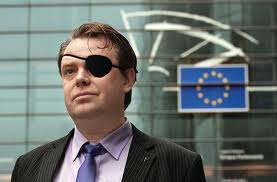
A point of view.
Katrina-Sandy: From one hurricane to another, the end of America as we knew it
Global Europe Anticipation Bulletin, 16 November 2012
As anticipated by LEAP/E2020 for several months, a major shock to the world economy and global stability has arrived in the Fall of 2012, in the form of a symbolic landmark in world history: Hurricane Sandy.
In the method of political anticipation upon which LEAP bases its analyses (1), Sandy corresponds to two characteristics: the “last-straw” event in which accumulated failures become unbearable and break the system, and the symbolic event that strikes the imagination and permanently transforms an image of reality, knowing one must always distinguish between the reality of a systemic change (at work since at least 2008) and its collective acceptance (in this case, that America is not what it once was).
The month of October 2012 will appear in history books as the date of the end of America as we knew it in the twentieth century. On October 29, the Hurricane Sandy hit New York 83 years to the day after the Black Tuesday crisis of 1929, revealing to the world the real state of American society and its symbol, New York City. The shift in perceptions in the media has been striking to behold, particularly in light of the aftermath of an election whose results the world should have applauded to: an America “changed,” “divided,” “third world,” “at an impasse,” “apocalyptic,” etc. (see a list of links below). Sandy has definitively shattered the American mirror.





